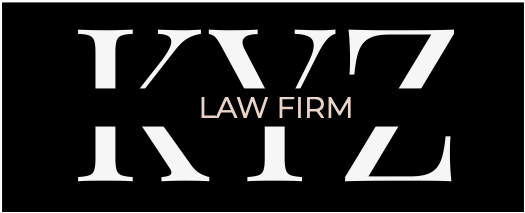Series LLCs offer business owners and investors unique ability to separate assets and liabilities within one overarching entity.
Series LLCs have long been available in states like Illinois—where the structure has been authorized under 805 ILCS 180/37-40—offering flexible asset protection for business owners and investors since 2005. Now, Florida joins the ranks with the passage of CS/SB 316, adding a new chapter to the Florida LLC Act (§ 605.2101–605.2802) effective July 1, 2026, to formally authorize Series LLCs under the Uniform Protected Series Act.
A Series LLC is a unique legal structure that allows a single LLC to establish multiple, independent "series" or cells—each with its own assets, liabilities, members, and business purpose. This option offers a streamlined way to compartmentalize liability and manage distinct business or investment activities under a single umbrella entity—making it particularly attractive for real estate investors, franchise operators, and entrepreneurs managing multiple ventures.
Why Choose a Series LLC?
- Liability Protection Across Series
Each series within a Series LLC is treated as a separate legal entity for liability purposes. If one series is sued or incurs debt, the others are generally shielded—provided proper formalities like separate records and accounts are maintained. - Administrative Efficiency
Rather than forming multiple LLCs (each requiring separate filing fees, reports, and governance), a single Series LLC can streamline formation and compliance. This means lower costs and reduced paperwork while maintaining separation of risk. - Operational Flexibility
Each series can have its own management, assets, and business model. This is ideal for entrepreneurs managing diverse ventures under one legal umbrella.
Who Should Consider a Series LLC?
- Real Estate Investors: A real estate investor owning multiple properties can place each property in its own series, isolating liability and simplifying bookkeeping while maintaining unified control at the master LLC level.
- Franchise or E-commerce Operators: A business with distinct product lines, brands, or store locations can assign each to its own series to limit risk and track performance independently.
- Family Offices or Holding Companies: A Series LLC can hold various asset types or investments across different series while minimizing interdependence.
A Practical Example:
Imagine a Naples-based property investor owns five rental homes. Instead of forming five separate LLCs, she can create one Series LLC with five protected series—one for each property. If a tenant sues over an injury in Property A, only the assets in Series A are at risk, not those in Series B through E.
Comparison of Series LLCs: Florida, Illinois, and Delaware
|
Feature |
Florida |
Illinois |
Delaware |
|
Effective Date |
July 1, 2026 |
Since 2005 |
Since 1996 |
|
Statutory Authority |
Fla. Stat. § 605.0102 et seq. (as amended) |
805 ILCS 180/37-40 et seq. |
6 Del. C. § 18-215 |
|
Formation Requirement |
Must opt in via articles of organization |
Must designate series in articles |
Automatic option—no filing required per series |
|
Separate Legal Status |
Yes (each series may sue/be sued) |
Yes |
No (series not treated as separate entities) |
|
Liability Shield |
Yes, if formalities met (records, separation); exposure possible if improperly maintained |
Yes, if proper records and separation are maintained |
Yes, but legal clarity less established; court recognition varies |
|
Creditor Exposure |
Moderate protection—creditors may challenge if formalities aren't observed |
Strong protection if compliance is strict |
Strong in theory, but more frequently challenged in litigation |
|
Registered Agent per Series |
Optional |
Optional |
Not required |
|
Tax Treatment |
Per series, if separate EINs/elections made |
Per series, if separate EINs/elections made |
Per series, if structured properly |
|
Real Estate Uses |
Well-suited for property-by-property ownership |
Commonly used in real estate |
Frequently used in investment holding |
|
Recommended Use Cases |
Asset segregation, real estate, franchising |
Real estate, asset portfolios |
High-volume investment holdings, complex structuring
|
Key Takeaway on Creditor Exposure
While all three jurisdictions provide for internal liability protection (insulating each series from the debts and obligations of another), the practical strength of that protection varies. Florida and Illinois both require strict segregation of assets, records, and operations between series. Failure to maintain formal separation may allow creditors to pierce the liability shield, exposing all series to collective risk. Delaware’s approach is more flexible in form but often litigated in court, making it less predictable.
Final Thoughts
Series LLCs offer powerful advantages, but they require strict internal compliance to maintain liability protection. Florida’s upcoming adoption brings new opportunities for business owners—but also new responsibilities. KYZ Law is available to advise clients on whether a Series LLC is right for them, and how to implement it correctly.


